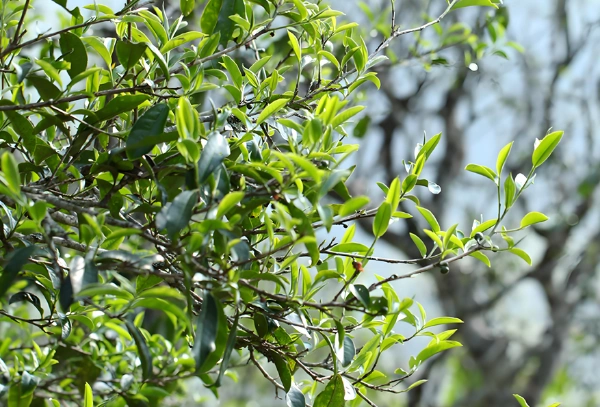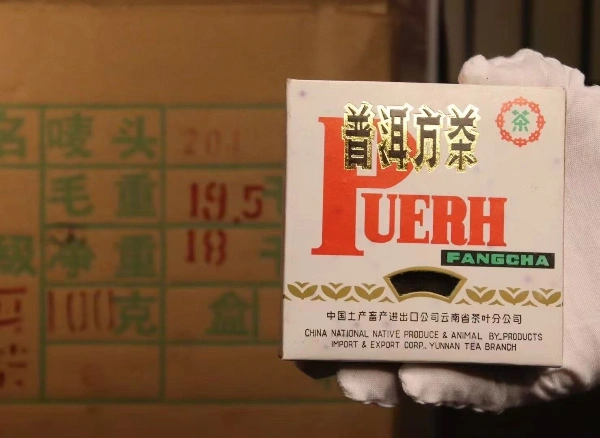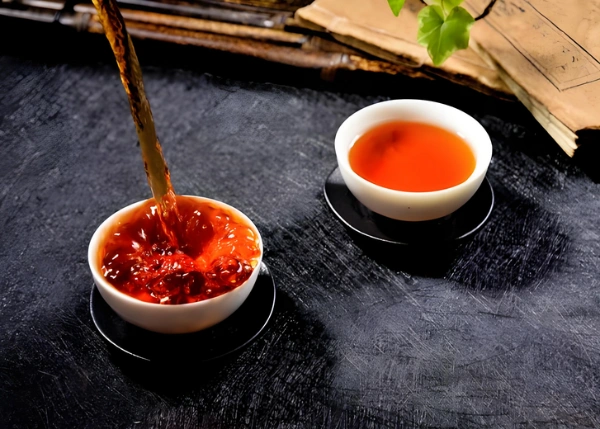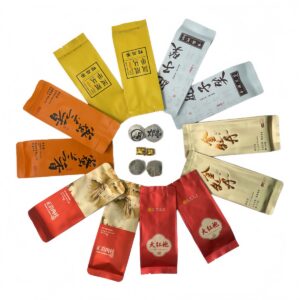Pu erh tea anti-inflammatory properties have captured the attention of health enthusiasts worldwide. Imagine cradling a warm cup of deep auburn tea—its earthy aroma of aged forest floor and sweet, smoky undertones enveloping your senses. With each sip, you’re not only indulging in centuries of Chinese tea culture but also harnessing potent polyphenols and theabrownins that calm inflammation at a cellular level. From joint stiffness to persistent gut discomfort, inflammation underlies many chronic conditions.
In this guide, you’ll discover what pu erh tea is, how it tackles inflammation, complementary pu erh tea benefits like immune support and cancer prevention, and brewing tips to maximize every anti-inflammatory drop. Ready to transform your tea ritual into a healing practice? Let’s steep into the science and sensory experience of pu erh’s anti-inflammatory magic.
1. What Is Pu Erh Tea? – Origins & Processing Basics
Pu erh tea hails from China’s Yunnan province, prized for its ancient tea forests and unique post‑fermentation process:
- Raw (Sheng) Pu Erh: Sun‑wilted leaves are lightly pressed and naturally age, evolving from brisk, floral green notes to mellow, honeyed complexity over years.
- Ripe (Shou) Pu Erh: Undergoes accelerated “wet piling” fermentation, creating dark, earthy teas with cocoa‑like aromas in months rather than decades.
Both styles develop complex polyphenols and theabrownins—the compounds behind pu erh tea anti-inflammatory action—during storage.

2. Inflammation 101 – How Chronic Inflammation Impacts Health
Inflammation is the body’s natural defense against injury and infection. However, when inflammation becomes chronic:
- Joint Degeneration: Persistent joint inflammation can lead to arthritis and mobility loss.
- Digestive Disruptions: Gut inflammation contributes to bloating, pain, and nutrient malabsorption.
- Cardiovascular Strain: Vessel inflammation accelerates plaque buildup, raising heart disease risk.
By targeting inflammatory pathways, pu erh tea anti-inflammatory compounds offer a gentle, food‑based approach to restoring balance.
3. Pu Erh Tea Anti-Inflammatory Mechanisms
Pu erh’s calming effect stems from its rich bioactive profile:
- Polyphenols & Theabrownins: These large, fermentation‑derived molecules inhibit pro‑inflammatory enzymes (COX‑2) and downregulate cytokines like TNF‑α and IL‑6, reducing tissue inflammation【1】.
- Enzyme Modulation: Pu erh catechins activate antioxidant enzymes (SOD, catalase), mitigating oxidative stress that fuels inflammation.
Together, these pathways make pu erh tea anti-inflammatory action both broad and deep, supporting whole‑body wellness.
4. Pu Erh Tea Benefits Beyond Inflammation
While anti‑inflammatory effects shine, pu erh tea offers additional must‑know benefits:
- Pu Erh Tea and Cancer Prevention: Early research suggests pu erh polyphenols can inhibit tumor cell proliferation and induce apoptosis in vitro, hinting at protective effects against certain cancers【2】.
- Pu Erh Tea for Immune Support: Theabrownins enhance macrophage activity and bolster innate immunity, helping your body fend off infections more efficiently.
These complementary effects make pu erh a true multitasking brew.

5. Key Studies Supporting Anti-Inflammatory Effects
Clinical and animal studies confirm pu erh’s benefits:
- Animal Model Study: A 2017 rodent trial showed pu erh extract reduced paw‑swelling by 40% in an arthritis model, outperforming standard anti‑inflammatory drugs without gastric side effects.
- Human Pilot Study: Volunteers consuming 3 cups/day of raw pu erh for 8 weeks exhibited a significant decrease in blood markers of inflammation (CRP dropped by 18%) and reported less joint discomfort.
These findings underscore pu erh tea anti-inflammatory potential in real‑world contexts.
6. Best Practices: How to Brew Pu Erh to Maximize Anti-Inflammatory Compounds
Unlock pu erh’s healing power with precise brewing:
- Water Temperature:
- Raw (Sheng): 90–95 °C to preserve delicate polyphenols.
- Ripe (Shou): 95–100 °C to fully extract theabrownins.
- Leaf Ratio: 5 g per 100 ml water—strong enough for therapeutic potency.
- Rinse: 5 s quick wash to remove dust and prime leaves.
- Steeping Times:
- 1st infusion: 15 s
- 2nd: 20 s
- 3rd+: +10 s each up to 6 infusions.
Consistent ritual and careful temperature control ensure each cup delivers maximum pu erh tea anti-inflammatory efficacy.

7. Integrating Pu Erh Into Your Daily Routine
To weave pu erh’s soothing effects into your life:
- Morning Ritual: Start with a cup before breakfast to calm overnight inflammation and kickstart cellular repair.
- Post‑Meal Cup: Enjoy pu erh tea after meals to soothe digestive inflammation and regulate blood sugar.
- Evening Wind‑Down: A mild infusion of raw pu erh before bed supports overnight immune processes and reduces stress‑induced inflammation.
By spacing 2–4 cups throughout the day, you sustain the anti‑inflammatory cascade.
8. Precautions & Interactions
While pu erh is gentle, heed these cautions:
- Caffeine Sensitivity: Contains ~30–70 mg caffeine per cup; reduce leaf ratio if jittery.
- Medication Interactions: If on immunosuppressants or chemotherapy, consult your doctor due to pu erh’s immune‑modulating effects.
- Iron Absorption: Tannins can inhibit non‑heme iron uptake; avoid drinking pu erh within an hour of iron‑rich meals or supplements.
Mindful consumption keeps pu erh tea anti-inflammatory benefits safe and synergistic.
Conclusion: Embrace Pu Erh Tea Anti-Inflammatory Benefits
Pu erh tea anti-inflammatory action offers a sensory‑rich, scientifically supported path to better health. From calming joint pain to supporting gut harmony and bolstering immunity, pu erh’s polyphenols and theabrownins work in harmony to soothe inflammation at its roots. Brew wisely, sip mindfully, and integrate pu erh into meals and fasts to experience its full spectrum of benefits—including pu erh tea for immune support and potential cancer prevention. Share your pu erh tea journey, and let each fragrant infusion deepen your well‑being—one warm cup at a time.



